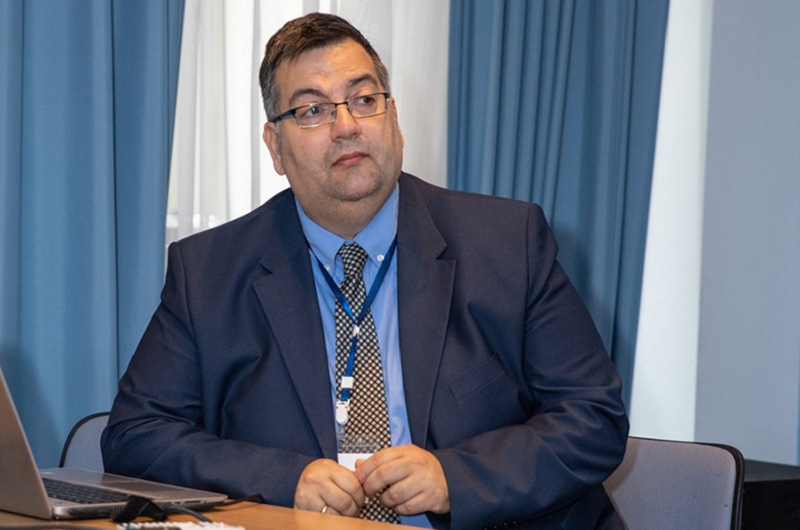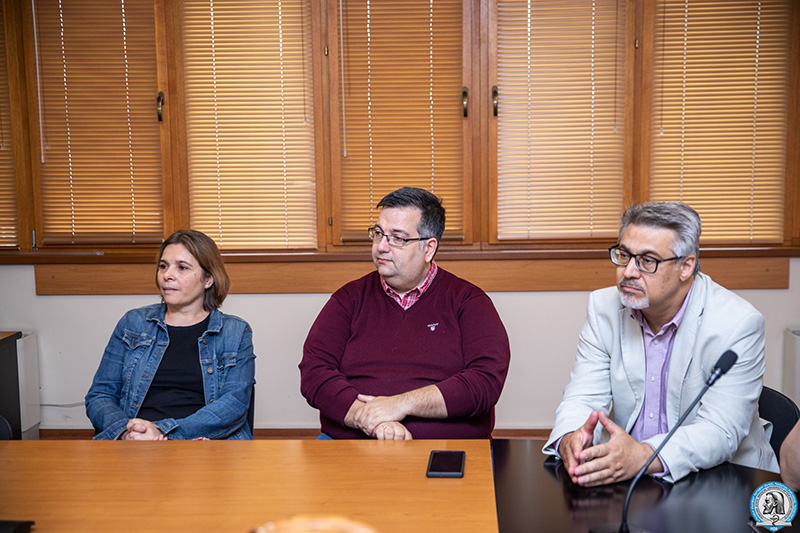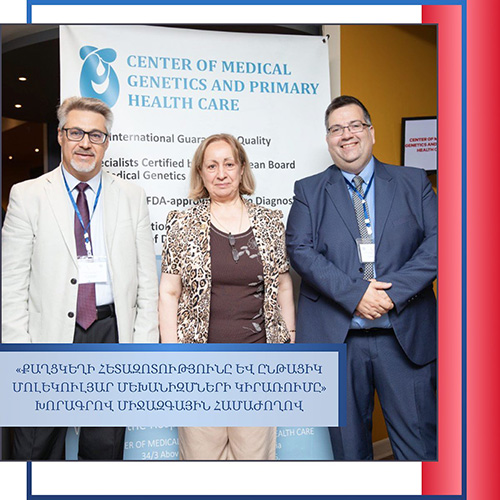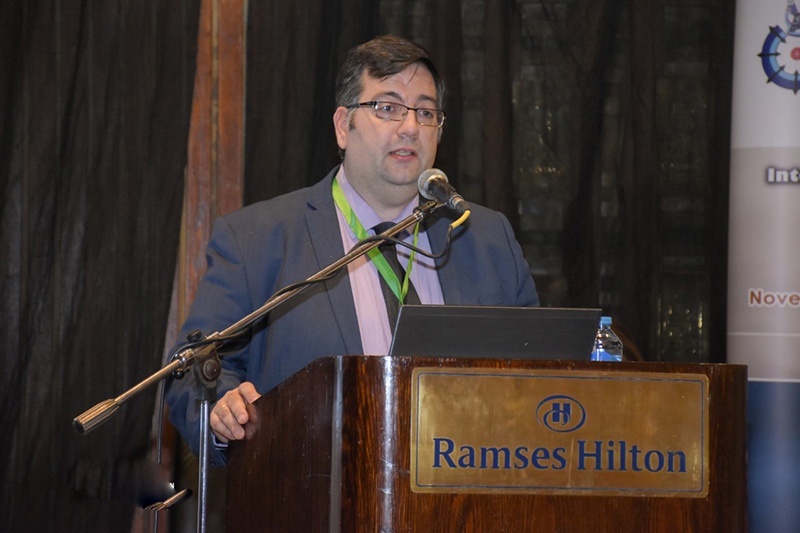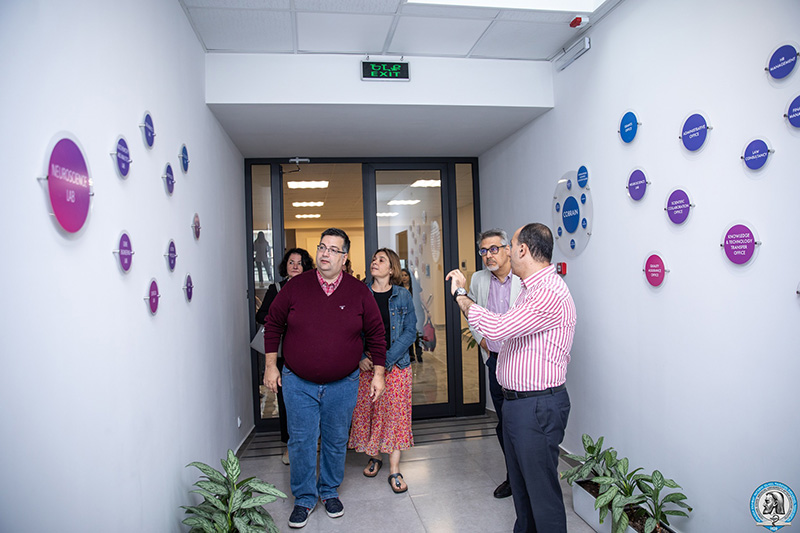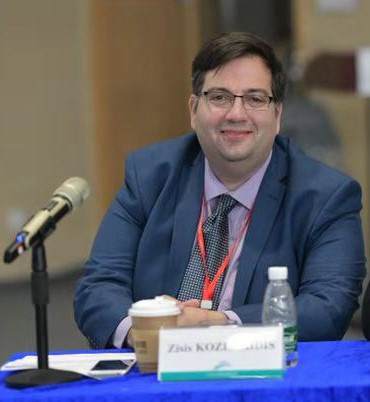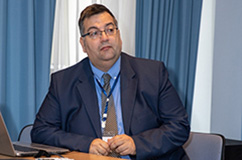 |
08.08.2023Zisis Kozlakidis is impressed by the ability of Armenian colleagues to overcome challenges |
Zisis Kozlakidis, Head of Laboratory Services and Biobanking at the International Agency for Research on Cancer/World Health Organization was hosted at Yerevan State Medical University Mkhitar Heratsi in the framework of the international conference titled "Cancer Research and Application of Current Molecular Mechanisms" held at the University within the ARICE program.
The Professor is one of the leading experts of the European Union Horizon 2020 Twinning "Armenian Research Infrastructure on Cancer Research - ARICE" program, and has a significant contribution to one of the most urgent health problems in our country - cancer research, as well as in the creation of a biobank in Armenia in accordance with European standards.
We spoke with the specialist responsible for one of the largest collections of biological samples and data about his work features, the results of the working visit to YSMU, the success recorded within the framework of the ARICE project, as well as the prospects of scientific interaction between Armenian and international specialists.
- Professor, why did you choose the profession of a microbiologist?
- I have always been fascinated by the impact microbes have on individual organisms, for example on humans. As pathogens, they are able to divert critical biological pathways and utilize them for their reproduction purposes. Additionally, the plurality and plasticity of pathogens’ genetic material is fascinating both at the global as well as individual scale.
- How would you describe your job at the International Agency for Research on Cancer? What does it consist of?
- Currently, I serve as the Head of Laboratory Services and Biobanking at the International Agency for Research on Cancer/World Health Organization, and am responsible for one of the largest collections of biological samples and data, supporting research on cancer. At the same time, we take active part in ongoing research programs, such as ARICE in Armenia, the Humane Exposome Assessment Platform, CanSERV and many others.
- What are you working on right now?
- One of our priorities at the moment is to set up an international multi-site study on human nutrition and cancer, in particular nutrition and acute childhood leukemia. In essence we are trying to understand how different nutritional approaches can have a positive impact on the clinical treatment of leukemia, acting supplementary to existing treatment options. This study is led by Prof Elena Ladas at Columbia University through the IIPAN and as you can imagine takes a considerable amount of effort to operationalize. However, the outcomes will be of immediate and significant clinical importance world-wide.
- Could you share your impressions from the recent working visit to Yerevan State Medical University?
- Myself and my international colleagues were impressed by the ability of Armenian colleagues to overcome the many challenges that exist, and be competitive in terms of research in the regional and international stage. For example, projects such as co-Brain merit particular mention as to how they are successfully transforming the YSMU infrastructure.
- Please, tell us about the success registered within the framework of the YSMU ARICE program.
- The YSMU ARICE program has been hailed by many as a great success, and deservedly so. It has been transformative in two ways: firstly, on the evaluation and assessment of current practices, and the update where necessary of standard operating procedures (SOPs). Secondly, on the strengthening of a collaborative environment between international partners and YSMU. This environment was already partly existing, led by Prof Tamara Sarkisian, and we managed to build upon those strong foundations.
- Could you share your plans regarding further scientific collaboration with Armenian specialists?
- For now, we are focusing on the publications that would result from the ARICE project, for example published in the international scientific journal ‘Innovations in Digital Health, Diagnostics and Biomarkers’. We will use those as stepping stones to develop further research proposals, based on the core of collaborative expertise we have built between Armenia, IARC/WHO, Czechia and Austria.
- Are you planning to visit Armenia in the future?
- Indeed, I am, though the exact details would need to be confirmed, so that such a visit can service many different objectives at the same time. Visiting Armenia has been an incredible experience, for the people -first, the people and public health challenges- and then for the many diverse landscapes.
- What would be your advice to your future colleagues?
- To be open to international collaborations and opportunities. I am aware, through my experience as well, that when one works within a hospital environment thinking about research seems such an additional chore – and often poses additional demands to already exhaustive schedules. However, being able to compare and contrast results from different locations allows for medical research to progress, and our excellent Armenian colleagues should be part of this international healthcare research ecosystem.
- Would you like to add something?
- I would like to thank very much our Armenian colleagues, for their kindness, perseverance and unmitigated enthusiasm throughout this project. It has been an absolute pleasure to be able to work alongside such great colleagues.
The views expressed by the interviewed staff are personal and do not necessarily reflect those of their institution.
